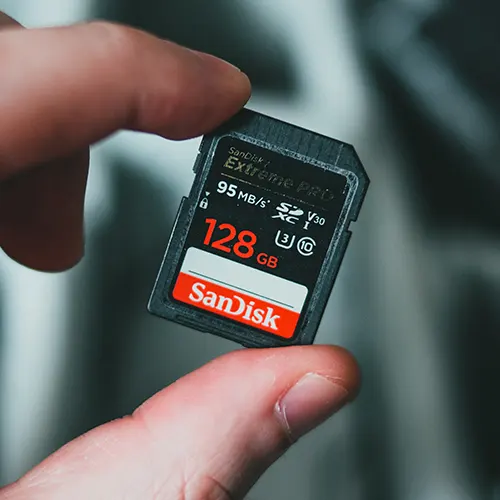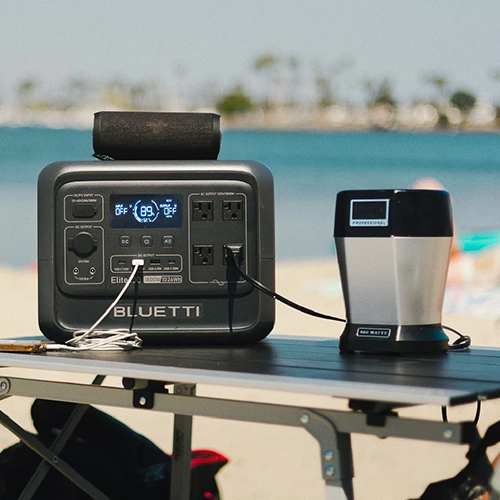
How to Optimize Mobile Phone Speed: 10 Expert Tips for Improved Performance
Is your mobile phone feeling sluggish? Don't worry, we've got you covered. In this article, we'll share 10 expert tips to help you optimize your mobile phone's speed and achieve improved performance. Let's dive in! and boost your mobile phone's speed and optimize performance with these 10 expert tips from MyMobileCompare.
How to Maximize Mobile Phone Speed
1. Close Unnecessary Background Apps:
Boost your mobile phone's speed by closing unused background apps that consume system resources. Unnecessary background apps can have a significant impact on phone speed and overall performance. Here are some ways in which unnecessary background apps can affect your phone's speed:
CPU and Memory Usage: Background apps consume system resources such as CPU and memory. If multiple unnecessary apps are running simultaneously in the background, they can consume a significant amount of these resources, resulting in decreased performance and slower response times for other apps and processes.
Battery Drain: Unnecessary background apps running constantly can consume battery power even when you're not actively using your phone. These apps may perform tasks like syncing data, fetching updates, or running background processes, which can drain your battery faster and reduce overall battery life.
Network Usage: Some background apps continuously access the network to fetch data or send updates. This constant network activity can impact your internet speed and result in slower network performance, especially if you have limited bandwidth or a weak network connection.
Storage Space: Background apps can accumulate data and cache files over time, occupying valuable storage space on your device. If your device's storage is nearly full, it can lead to slower performance and reduced efficiency in running other apps.
System Stability: Having multiple unnecessary background apps running simultaneously increases the likelihood of conflicts, memory leaks, or other system stability issues. These issues can cause app crashes, freezes, or overall system slowdowns.
2. Remove Unnecessary Apps:
Enhance your phone's speed by uninstalling unused apps that occupy storage and affect system performance. Unnecessary apps that are installed on your phone can indeed impact its speed and performance in several ways:
Storage Consumption: Each installed app occupies storage space on your device. If you have a large number of unnecessary apps installed, they collectively consume valuable storage space. When your device's storage is nearly full, it can slow down the system and affect the performance of other apps and operations.
Background Processes: Even if you're not actively using unnecessary apps, some of them may run background processes or services. These background processes consume system resources like CPU and memory, which can slow down your device and impact the performance of other apps.
Battery Drain: Unnecessary apps running in the background can also contribute to increased battery drain. Background processes and services consume battery power, even when you're not using the app directly. This can lead to reduced battery life and the need for more frequent charging.
App Interference: Having a large number of installed apps, especially unnecessary ones, increases the likelihood of app interference or conflicts. These conflicts can cause crashes, freezes, or other performance issues when apps try to interact with each other or compete for system resources.
3. Disable or Limit Animations:
Improve responsiveness by reducing or disabling system animations through developer options in your phone's settings.
4. Keep Software Up to Date:
Ensure optimum performance by regularly updating your phone's operating system and installed apps. An outdated phone operating system (OS) and apps can have a significant impact on phone speed and overall performance. Here are some ways in which outdated software can affect your phone:
An outdated phone operating system (OS) and apps can have a significant impact on phone speed and overall performance. Here are some ways in which outdated software can affect your phone:
Performance Optimizations: Operating system updates often include performance optimizations and bug fixes that can improve the speed and efficiency of your phone. When you're using an outdated OS, you may miss out on these optimizations, resulting in slower performance compared to devices running the latest software.
Compatibility Issues: Outdated apps may not be fully compatible with newer versions of the operating system. As a result, they may experience compatibility issues, crashes, or errors, leading to decreased performance and responsiveness.
Security Vulnerabilities: Outdated operating systems and apps are more likely to have security vulnerabilities that can be exploited by malicious actors. These vulnerabilities can impact the overall security of your device and potentially slow down its performance due to the presence of malware or the need for security-related background processes.
Lack of Features and Enhancements: Newer versions of operating systems and apps often introduce new features, functionality improvements, and user interface enhancements. By using outdated software, you may miss out on these advancements, resulting in a less efficient and potentially slower user experience.
App Performance and Compatibility: Apps that haven't been updated to support the latest OS versions may experience performance issues or compatibility problems. These issues can manifest as slow app launch times, laggy user interfaces, or increased resource usage, ultimately affecting the overall speed and responsiveness of your phone.
5. Restart Your Phone Regularly:
Improve performance by restarting your phone to clear temporary files and processes. Restarting your phone regularly can help improve its speed and overall performance in several ways:
Clearing Memory: When you use your phone, various apps and processes consume system resources, including RAM (Random Access Memory). Over time, these resources can become fragmented or cluttered, leading to decreased performance. Restarting your phone clears out the memory and closes all running apps and processes, allowing the system to start fresh and allocate resources more efficiently.
Closing Background Processes: Some apps continue running in the background even when you're not actively using them. These background processes can consume system resources and impact performance. Restarting your phone closes all background processes and ensures that no unnecessary apps are running, freeing up resources and improving speed.
Resetting App States: Certain apps may encounter issues or bugs that affect their performance over time. By restarting your phone, you reset the states of these apps, clearing out any temporary glitches or problematic states that may be causing slowdowns.
System Updates and Maintenance: Restarting your phone regularly allows it to install any pending system updates or firmware upgrades. These updates often include bug fixes, security patches, and performance improvements that can positively impact the speed and stability of your device.
Network Connectivity: Restarting your phone can also help resolve connectivity issues with cellular networks or Wi-Fi. Sometimes, network-related problems can impact overall device performance, and a restart can help refresh network connections and establish stable connections.
It's generally recommended to restart your phone at least once a week or whenever you notice performance degradation. However, the frequency may vary depending on your specific usage patterns and the requirements of your device.
By restarting your phone regularly, you give it a fresh start, clear out unnecessary processes and memory usage, and ensure that it benefits from the latest updates and optimizations. This can result in improved speed, responsiveness, and overall performance.
Use Lightweight App Versions: Opt for lightweight or lite versions of popular apps designed for better performance on low-end devices.
Disable or Limit Background Data Usage: Boost speed by restricting background data usage for apps that don't require constant updates.
Clear Up Storage Space: Free up space by deleting unnecessary files like old photos, videos, and large downloads.
Clear App Cache: Free up storage space and improve performance by regularly clearing the app cache through your phone's settings. Consider a Factory Reset: If your phone remains slow, a factory reset can restore its original state and often improve performance.
By following these 10 tips, you can optimize your mobile phone's speed, resulting in a smoother and more efficient user experience.
Frequently Asked Questions (FAQs)
1. How can I boost my mobile phone's speed?
You can boost your phone's speed by closing unnecessary background apps, removing unused apps, disabling or limiting animations, keeping your software up to date, and restarting your phone regularly.
2. What's the impact of unnecessary background apps on phone speed?
Unnecessary background apps can slow down your phone by consuming CPU, memory, and battery resources, affecting overall performance and responsiveness.
3. How does outdated software affect my phone's performance?
Outdated software can lead to slower performance due to missed performance optimizations, compatibility issues, security vulnerabilities, lack of new features, and app performance problems.
4. Why should I restart my phone regularly?
Regularly restarting your phone clears memory, closes background processes, resets app states, installs updates, and resolves network connectivity issues, improving speed and overall performance.
5. What should I do if my phone remains slow despite these tips?
If your phone remains slow, consider using lightweight app versions, limiting background data usage, clearing storage space, clearing the app cache, or performing a factory reset to improve performance.
Latest Blogs

Exploring Memory Card Types: A Comprehensive Guide

Blackview Tablet Reviews: A Comprehensive Look at Features and Performance

The Best Portable Power Stations & Solar Generators in the UK (2025 Guide)

10 Best Smartwatches for Kids


